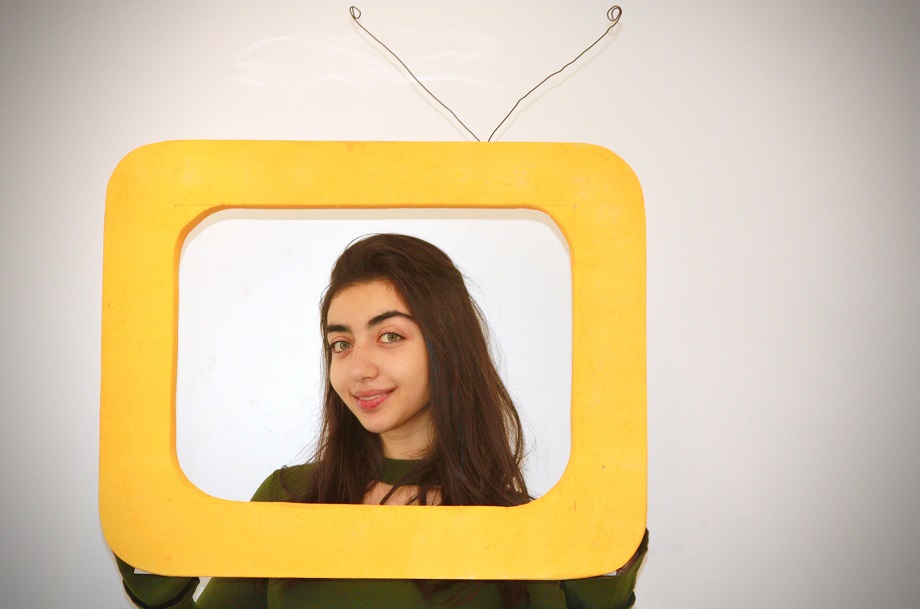We have all heard phrases like “your ballot can change things”, or “each piece of plastic damages the planet”, and so on. We have also seen artists, who put two oranges on a big table, say it’s beautiful and call it art.
Whether it’s beautiful or art, it's deeply personal. Anyway, all these cases are the expression of minimalism, and they all seem senseless at first sight. If it’s senseless, it’s abnormal. So which is normal and what is minimalism?

My name is Gog, people say Goharik in short.
During the 2018-19 academic year, the students of the 11th grade (who are 12th graders now), divided into two groups for English lessons. Group 1 teacher’s name was Anna; Group 2 teacher’s name was Armenuhi. We called them Miss Ann and Miss Armenuhi.
On the threshold the IGCSE English exam, the above-mentioned Gog, or Goharik, instead of preparing for the exam, cleaning the room and finally untangling the wired earphones, took the calculator and started some weird English-mathematical calculations.
And so,
The average time to pronounce ‘Miss Ann’ is 0,40 seconds. To pronounce ‘Miss Armenuhi’ takes 0,75 seconds. The average duration of a lesson is 40 minutes, during which the students address the teacher 16 times (every 2,5 minutes).
There are 4 English lessons a week.
During the first semester, the 11th grade students had 60 English lessons, each lasting 40 minutes. During the second semester, there were 68 English lessons.
Thanks to my “brilliant mathematical skills”, I found out that we had 128 (60 + 68) 40-minute English lessons during the whole academic year.
128 x 16 = 2048 times we addressed our teachers as ‘Miss Ann’ and ‘Miss Armenuhi’.
Saying ‘Miss Ann’ took 2048 x 0,40 = 819.2 seconds (13,65 munities) in a year, while saying ‘Miss Armenuhi’ took 2048 x 0,75 = 1536 (25,6 munities).
It turns out during the 2018-19 academic year that the student’s from Miss Ann’s group had 25,6 – 13,65 = 11,95 more minutes to study.
Give me just 5 minutes and I’ll get up
These are the words, the above mentioned Gog, or Goharik, says every morning. But she can’t stay in bed for long, otherwise she will be late for the school bus. While one (Goharik, who is Sam’s classmate) is trying to get up, the other (Sam, who is Goharik’s classmate) is already sitting in the bus.
And so #2,
The school bus takes Sam and Goharik from their bus stops at 7:56am and 8:06am respectively. After the lessons, the same bus takes the classmates back home. Goharik arrives at home at 5:09pm, while Sam gets home at 5:33pm.
Goharik and Sam have the same number of subjects at school and spend the same amount of time to do their homework. They go to bed nearly at the same time as well. During the 2019-20 academic year, Sam and Goharik would have 213 days at school (6 days per week, except for autumn and winter vacations, holidays and special days.
However, in the morning Goharik sleeps 08:06 – 07:56 = 10 minutes more and gets home 17:33 – 17:09 = 24 minutes earlier than Sam does. Thus, Goharik gains 10 + 24 = 34 minutes daily that is 213 x 34 = 7242 minutes = 120,7 hours = 5,02 days annually.
As a result, during the 2019-20 academic year, Goharik had 5 more days to sleep than Sam did. Having less sleep may harm Sam’s health, affecting his heart, stomach, blood pressure and metabolism.
Some people will dislike this article, some will just laugh. Some are minimalists and like their short names. This is nothing but a personal opinion, like two oranges on a big table. Anyway, this is a minor but actually a big injustice that has no solution. That’s probably the reason for saying “on average” and not “exactly”. In this case, all my classmates would get the same points for the exams, all citizens of my country would have the same rights and all people on the planet would avoid using plastics.
Microminimalist Goharik Adamyan, 12th grade
Share